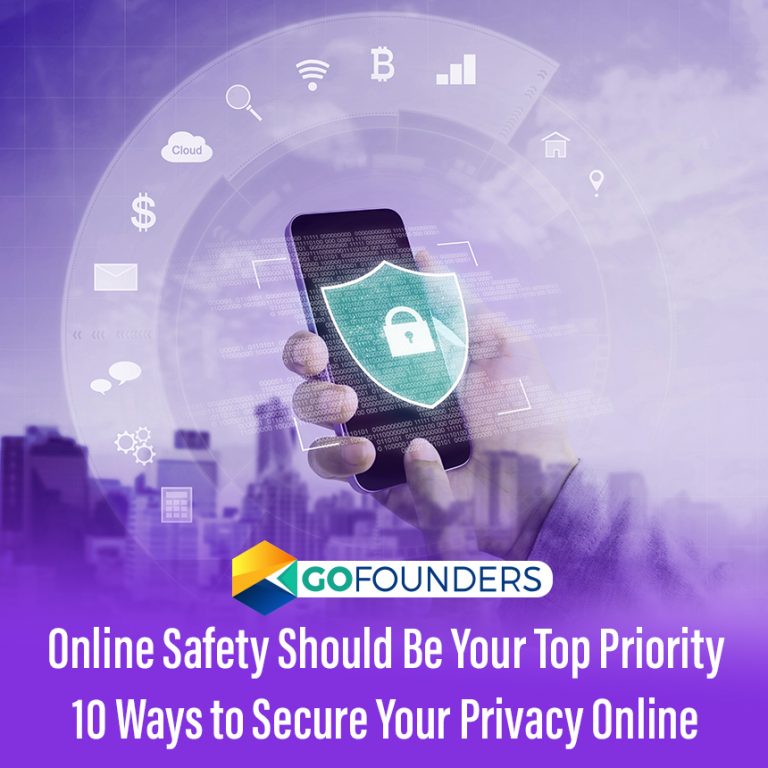
Until the internet entered everyone’s life as a common household thing, people used to secure their houses, bank lockers and wallets. But since the internet has arrived, people started uploading personal information online, such as name, contact details, address, certificates, money, property details, on vacation details, visiting place info, upcoming event participation, etc.
If you think hackers or scammers are behind your online money only, then you are wrong. They might hack your social media account to track where are you – at home or on a trip?
If you are enjoying your vacation, let’s say somewhere in Hawaii, then most likely hackers can take the advantage of your absence and break into your left-alone house and rest you all know what could happen. Not only this, they might impersonate you to cheat your clients and customers, and that would be worse.
You must be thinking that your Wi-Fi at home is secured and you keep everything password-protected, so none of the above could happen with you. But let us tell you that hackers are way smarter than you.
So what should you do to be safe online?
Here are the top 10 ways of keeping your information and personal details safe and secured online:
- Create strong and complex passwords: First of all, never use the same password for all your online accounts. Create strong and complex passwords for each account. It’s always suggested to use alpha-numeric password along with some special characters to increase complexity for hackers to crack it. You can also use Two-Factor Authentication or 2FA, which are provided by some online service providers for an extra layer of online security.
In case you tend to forget multiple passwords, then we suggest you use Password Managers, such as McAfee’s True Key, 1Password or LastPass, which can generate strong passwords for you and store them safely at one place for all your accounts.
- Secure Your Network: Once your passwords are secured, make sure to secure your network too. Usually, home Wi-Fi connections use password-protected routers. However, if you want to use public networks, then use authentic VPN networks that create a secure connection over the internet for safely sending and receiving data anywhere.
- Activate Firewall: If you want to block unauthorised access to your devices connected over a connection, then we recommend you to activate Firewall which acts as a barrier between two networks, authorised and unauthorised.
- Stay Away from Phishing Contents: Even after using strong passwords, VPNs or activating Firewall, there is a chance you get in the trap of hackers by yourself. Phishing attempts have increased by 65% when compared to 2018, and 90% of data breaches are contributed by Phishing activities. 76% of businesses have been victimized every year.
These can be avoided by only one simple action – Not clicking on spam emails and messages. Do not click on any email, message or links that look catchy but also sound fishy. Avoid clicking on such contents.
- Don’t Upload What’s Not Necessary: If you are on social media sites, we recommend not to upload details which are private to you and at the same time unnecessary to upload on the social media sites.
- Secure Mobile Networks: Have you heard “Mobiles are the new desktops”? Because this is true. Desktops are getting obsolete day-by-day, and mobile phones with advanced features are replacing desktops, laptops and even cameras. If we should protect our laptops and desktops, then today we should definitely secure mobile networks too. Don’t click on random unknown links, keep security software updated, don’t download downloads apart from App Store or Google Play Store.
- Shop Safely: Usually, when we shop online, we tend to save our debit or credit card details. Make sure such sites are secured for transactions and storing card details. Check URL or website contents for any hint that indicates the website to be fake or illegitimate.
- Update Software Regularly: You must have observed your phones asking you permission to update apps. This is done by the app providers to add more security and feature upgrades. Hence, you must keep updating your phone apps. Keep auto-update on so that you do not forget updating apps manually.
- Stay Informed: You must look out for the latest online threats that are not detectable by phones or desktops. You might have to install some software to prevent any such new threats breaching your security measures.
- Always Create Backup: You never know which online threat can penetrate your security network and extracts or permanently deletes your data. Hence, make sure you create a backup of your important documents and files and keep those disconnected from the main system so that hackers do not get access to those files.
Hope these simple steps will help you secure your personal information from getting hacked and also protect you from various viruses and ransomware.


